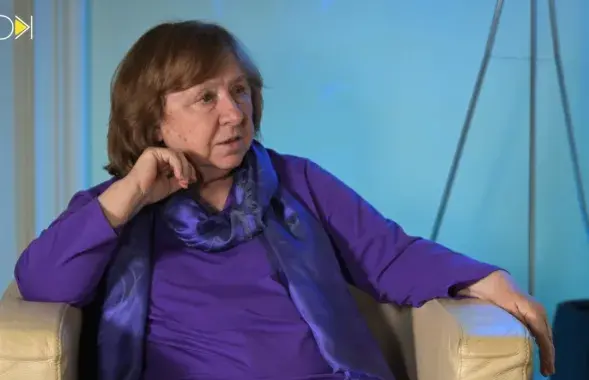Russia tends to make money on Belarus in Customs Union
Does Russia really have the right to get part of the export duties for Belarusian mineral oil? Why has the Kremlin put off the creation of a single customs area
Russia has decided to put the snatch on the Belarusian budget. The
Kremlin thinks Belarus has to share part of the oil export duties for
the fuel produced from Russian oil at Belarusian oil-processing plants.
They even say there is some document proving it.
Russia has artificially put off the creation of a single customs area
Syarhei
Chaly: The Russian Ministry of Economy has sent a letter informing
about its intention to impose export duties on oil. Or to be able to get
at least part of them in the Customs Union.
ERB: What is the intention based on?
Syarhei
Chaly: We have an agreement on creation of a single customs area signed
by the Customs Union Commission in November 2009. The single Customs
area had to be created by July 1, 2010 but… According to the letter of
the Ministry of Economy, it has to be done in two stages.
The
first stage was over on July 1, 2010 when the Customs Union was created.
Let us look through the Agreement on creation of a single customs area
and creation of the Customs Union of 2007 and read article 2:
“The
decision to unite the countries’ customs areas into a single customs
territory and to create the Customs Union is taken by the highest body
of the Customs Union after the following terms are fulfilled:
<…>
b) introducing and using a single trade regime with third states”.
However,
as the Agreement mainly concerns import issues and does not regulate
the export, Russians claim that a single trade regime for third states
had not been created yet. It means that the single customs area has not
been created either. The second stage in needed for it –July 1, 2011.
It means that it is impossible to use article 3 of the Agreement according to which:
“The
sides cannot use customs duties, restrictions of quantity and any
equivalent attempts in mutual trade after the single customs area is
created”.
ERB: Russia is using the convenient logic during the
creation of a single customs area. The area and the Customs Union have
not been created simultaneously: at first it was the Customs Union on
July 1, 2010. The economic area will be created later.
Syarhei
Chaly: At the moment it is not clear what we created on July 1, 2010.
The single customs tariff was introduced on January 1, 2010. We had to
change all export control to correspond it to the Customs Union on July
1. Producers, be they Russia, Belarus or Kazakhstan – had to be
indicated as “Customs Union”.
ERB: Can trade restrictions and
customs duties be preserved between the members of the Customs Union
until a single customs area is created?
Syarhei Chaly: They can.
And Russia is actively using the fact to protect its market and to make
money. We have been observing it since January 2010 when import duties
for Russian oil were introduced. We will witness it in alcohol import a
bit later.
Russia’s claims to part of export duties of Belarusian mineral oil are groundless
Syarhei
Chaly: Let us continue studying Russia’s logic. If a single customs
area is created and the Customs Union starts functioning to the full and
if there is a single trade policy for third states where both import
and export will be regulated, it will result in an interbudget division
of both import and export duties. However, instead of trying to settle
this issue, Russia has recalled an agreement signed 15 years ago. It
denoted the terms of assigning customs duties for products made by
Belarusian enterprises from Russian raw materials.
ERB: All
Russian oil was imported to Belarus duty-free at that time and Russia
was interested in getting dividends from the exported part.
Syarhei
Chaly: The agreement was signed in the old Customs Union of our states.
The interbudget distribution of the duties was 85% for Russia and 15%
for Belarus back then.
Is it possible to refer to that project
now? The document with a very long title “Agreement between the Russian
Federation and the Republic of Belarus on the way of distribution of
export duties for exported goods produced at Belarusian enterprises from
Russian raw material between the budgets of the Russian Federation and
the Republic of Belarus” of May 12, 1995 could be in power – attention! –
“six months after one of the sides had sent a written notification
about its intention to cancel it to the other side”.
ERB: You are speaking as if you know that somebody has already sent such a notification to someone.
Syarhei
Chaly: Exactly! The resolution of the Belarusian Council of Ministers
of January 12, 2001 (#43) is the written notification. The agreement
with the long title expired in the middle of 2001. Any interbudget
distribution of custom duties is out of the question at the moment.
ERB:
Ill luck. 9 years and not just six months has passed since the Council
of Ministers abolished the agreement! Doesn’t the Russian Ministry of
Economy know about it?
Syarhei Chaly: It does. That is why the
letter says “… it is necessary to provide the realization of the
principles mentioned in part 3 of article 4 of the Agreement on the
Customs Union between the Russian Federation and the Republic of
Belarus”. Providing the realizations of the principles and insisting on
fulfillment of the Agreement is not the same thing. It is a rather
dangerous notion as there can be different ways “to provide for the
realization of the principles”.
Single economic area created earlier then single customs area?
ERB:
Let’s sum it up. At first Russia delayed the creation of a single
economic area until mid 2012 in order to create a Customs Union that
would protect the Russian import and would not create obstacles for the
export of Russian energy carriers. It even allowed making money on
Belarusian oil export duties.
There is one more trick here:
Russia has delayed the creation of a single customs area by mid 2011 to
avoid using a single trade regime for third states. It allowed it to lay
claims to part of the export duties for Belarusian mineral oil produced
from Russian raw materials according to previous Belarusian-Russian
agreements abolished now.
Syarhei Chaly: I cannot think of a way to demonstrate the absurdity of this situation better.
ERB:
If the single customs area is created, all export duties will be
distributed between budgets of the three members of the Customs Union.
Export duties for Russian energy carriers will be included there.
Syarhei
Chaly: I still claim that the single economic area is a trick invented
to keep the Customs Union the way it satisfies Russia. It is Russia’s
attempt to avoid sharing. Now Russia is not only trying to avoid
sharing, it is hankering after things belonging to us.
The
Belarusian Foreign Minister Andrei Yeudachenka claimed at the end of
August that our country expected the pack of documents about the
creation of a single economic area to be ready – attention! – by January
1, 2011! Moreover: “We have noticed the intention of our colleagues
from Russia and Kazakhstan to finish the work in the same term”, - added
Mr. Yeudachenka.
It turns out that officials think that the
single economic area cancelling trade restrictions for the domestic
market of the Customs Union can exist without a single customs area the
creation of which is being delayed by Russia in order to keep
restrictions.
“Prohibition” for Customs Union
ERB: We cannot stop discussing the Customs Union for some reason.
Syarhei
Chaly: How can one do it? Russia initiated a few events last week and
they mean that: the Customs Union does not function the way it was
supposed to either de jure or de facto.
ERB: This is our old thesis.
Syarhei
Chaly: It is true, but its manifestation is always different. Let’s
start with Russia’s “claims” that are the easiest to refute.
Syarhei
Chaly: The Russian Customs Service is trying to prevent the import of
Moldavian and Georgian wines from Belarus and Kazakhstan. To close the
Russian market from them, they invented that “the agreement about single
customs borders for the Union member states does not cancel the federal
law “On state regulation of production and distribution of alcohol”
according to which any alcohol crossing the Russian border is classified
as import or export and needs clearing”.
But what is this Custom
Union if import and export still exist in it? This is the first thing.
Secondly – why legal acts that should have been cancelled long ago are
still being referred to? This law may be preserved for the states that
have not joined the Customs Union. However, international agreements are
agreements of a higher level and they are more important that national
ones.
ERB: This is another protective measure!
Syarhei Chaly:
It is even funnier as the control over the production and quality of
alcohol is much stricter in Belarus than in Russia. And they admit it.
Here’s a quote from the report: “High-quality vodka is produced in
Belarus, good Moldavian and Georgian wine is bottled there and the level
of sanitary and hygienic control is much higher than ours”.
Evidently,
it is an attempt to protect the country from goods produced by the
other Customs Union member states. It contradicts to the very logic of
the integration unit.
ERB: However, the Russian law on production
and distribution of alcohol had existed before the agreement about the
Customs Union was signed. And it was in power together with the
agreement for two months. Did they forget about it?
Syarhei Chaly: It seems they did.
ERB: Have they recalled it now?
Syarhei
Chaly: Naturally. The thing is a lot of such small issues have been
revealed recently. But the logic of the Customs Union is the abolishment
of internal restrictions despite a small number of goods mentioned in
the exceptions protocol of the Customs Union. But there is no alcohol on
that list.
Customs Union ― for Russia
Syarhei Chaly:
Russia imposed an embargo on the export of grain a bit earlier and tried
to make the other participants of the Customs Union “join in”. When it
failed to do it, it claimed that the documents of the Customs Union did
not affect export issues in any way. They said that export in the
Customs Union was a personal issue of its member states.
ERB: What does it mean to us?
Syarhei Chaly: They admitted they wanted the Customs Union to regulate import only.
ERB:
It seems Belarus is very passive in the Customs Union. Russia is always
dictating and is imposing its own interpretation of laws they way it
wants!
Syarhei Chaly: Indeed, it turns out like that: Russia
thinks the Customs Union does not function in the fields it does not
want it to.
ERB: And, vice versa, it functions in the areas no one expected it would?
Syarhei
Chaly: I cannot say so. However, in the fields the Customs Union does
function is it adjusted to Russia’s demands and they try to combine it
with other legal acts the way it is advantageous for Russians.















